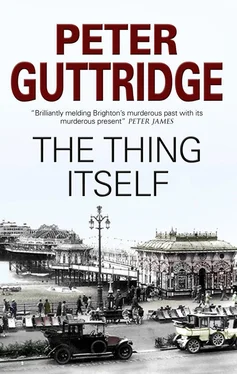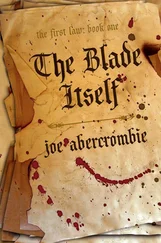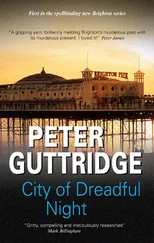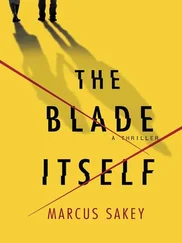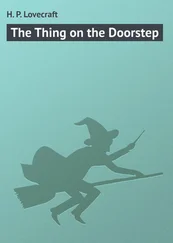Peter Guttridge - The Thing Itself
Здесь есть возможность читать онлайн «Peter Guttridge - The Thing Itself» весь текст электронной книги совершенно бесплатно (целиком полную версию без сокращений). В некоторых случаях можно слушать аудио, скачать через торрент в формате fb2 и присутствует краткое содержание. Жанр: Триллер, на английском языке. Описание произведения, (предисловие) а так же отзывы посетителей доступны на портале библиотеки ЛибКат.
- Название:The Thing Itself
- Автор:
- Жанр:
- Год:неизвестен
- ISBN:нет данных
- Рейтинг книги:5 / 5. Голосов: 1
-
Избранное:Добавить в избранное
- Отзывы:
-
Ваша оценка:
- 100
- 1
- 2
- 3
- 4
- 5
The Thing Itself: краткое содержание, описание и аннотация
Предлагаем к чтению аннотацию, описание, краткое содержание или предисловие (зависит от того, что написал сам автор книги «The Thing Itself»). Если вы не нашли необходимую информацию о книге — напишите в комментариях, мы постараемся отыскать её.
The Thing Itself — читать онлайн бесплатно полную книгу (весь текст) целиком
Ниже представлен текст книги, разбитый по страницам. Система сохранения места последней прочитанной страницы, позволяет с удобством читать онлайн бесплатно книгу «The Thing Itself», без необходимости каждый раз заново искать на чём Вы остановились. Поставьте закладку, и сможете в любой момент перейти на страницу, на которой закончили чтение.
Интервал:
Закладка:
His personal life was the subject of much speculation. His name was linked to a number of women — including Vivien Leigh — before his marriage in 1965, at the age of 52, to Elizabeth James, an artist twenty-five years his junior. They had a son, Robert, in 1970. He went on to a distinguished army and police career that recently came to an abrupt end when, as Chief Constable of Southern Counties Constabulary, he resigned over the notorious Milldean Massacre.
Donald and Elizabeth divorced in 1990. His name had continued to be linked to a number of women during his marriage. After he divorced, he moved to Barnes, where, at the age of 77, he is rumoured to have had an affair with a world-renowned ballet dancer many years his junior. His former wife, Elizabeth, forged a successful career as an artist. She died of cancer in 1998.
Always a vigorous man, Donald Watts was running marathons until his early nineties. And, if rumours are true, his fiction will soon get a new lease of life: Quentin Tarantino is said to be in pre-production on a film of Pope’s Prayer .
Although Tempest stopped writing novels early in the new millennium, he is believed to have completed an autobiography before his death in which he reveals the true identity of the Brighton Trunk murderer. He is survived by two sons and a daughter.
Where the hell did the obits get that story about the identity of the Brighton Trunk murderer? Bob Watts put his newspaper aside. He looked out across the Thames to the mudflats on the other side, focusing on a crew trying to get a boat into the water down a concrete ramp. They were choosing a bad time. The tide was turning and any minute the tide coming in and the tide going out were going to create a stasis on the water that it would be hard to work through.
His father had always liked this high-ceilinged Victorian pub with its ornate balcony hanging over the river. It was just a couple of hundred yards from his river-front Georgian house by Barnes Bridge. Watts was having a drink in his dad’s memory as a break from sorting through the piles of papers in his father’s musty study.
A tourist boat went by from Ham, heading up to Westminster. As it went under Barnes Bridge, its sluggish wash hit the base of the pub and the oarsmen at the same time. The pub weathered the surge of water. The rowers did less well.
Watching them, Watts phoned his father’s agent, Oliver Daubney, an old-style publishing man approaching retirement.
‘Bob, terribly sorry to hear about Don’s death — but not a bad innings, eh?’ Daubney had a mellifluous drawl.
‘This stuff in the obits about dad knowing the identity of the Brighton Trunk Murderer? Did that come from you?’
‘It’s what Don told me — and if it helps to sell the autobiography. .’
The rowers, soaked, were clambering over the side of their boat, lugging their long oars with them.
‘He once told me he didn’t have a clue,’ Watts said.
‘You should always take what fiction writers tell you with a pinch of salt.’
Watts sipped his drink.
‘Is there an autobiography?’
‘So he told me,’ Daubney said. ‘And I had no reason to doubt him.’
‘You don’t have it, then?’
‘I’m waiting for you to find it among his papers. Have you thought any more about your own autobiography?’
Daubney had been keen to take advantage of Watts’ notoriety post-Milldean to rush out an autobiography of some sort. Watts had decided he should wait another couple of decades.
‘I haven’t begun my career yet, Oliver,’ he joked. ‘I told you that.’
Daubney chuckled.
‘I’ll tell my son to get back to you after I’m gone.’ He paused. ‘How are you getting on with the papers?’
‘Badly. I haven’t even found a will — but it is early days.’
‘Not in his bureau? Your dad was an orderly man.’
‘Nothing there.’
‘You know there are always a couple of hidden drawers or compartments in those old bureaux?’
Watts laughed.
‘I didn’t — but that’s typical of my dad to hide things away. Him and his bloody secrets.’
TWENTY-SEVEN
Bob Watts ran his hands over his father’s mahogany bureau, pushing randomly at extrusions. A concealed drawer sprang out from one side.
He took out a large brown envelope marked for his attention. In the envelope were smaller envelopes marked ‘Will’, ‘House Deeds’, ‘Insurance Policies’, ‘Passport’, ‘Birth Certificate’ and ‘Bank Details’. He skimmed the will. There were no surprises. Everything split three ways, with small bequests for grandchildren. He shuffled the other envelopes and saw a second one also addressed to him.
He took it over to the wingback chair in the bay window. Slit the envelope with his father’s ivory-handled letter-knife. There was a single sheet of paper inside. A letter, dated only a few weeks earlier, addressed ‘Dear Robert’. He thought for a moment. He was pretty sure the date was the last time he’d seen his father, in a pub beside Kew railway station. He laid the letter on the chair-arm and got a whisky from his father’s old-fashioned drinks cabinet.
Settled again, he picked up the letter.
Dear Robert,
I know I don’t make things easy for you. Never have. I don’t really know why. Perhaps because I had you so late in life I didn’t know how to be a father. Perhaps it’s just my temperament.
Anyway, I’ve always loved you, in my way. For what that’s worth. I was sorry to see you come a cropper and proud of the determination you have shown to get through it.
I’ve been keeping a few things from you. I got caught up in things when I was young and stupid, and mistakes made early on have a habit of clinging to you down the years. Not that I didn’t make mistakes late in life too.
I’ve tried to be open in some jottings I’ve been writing for a while now. Not quite a diary, perhaps. Notes for an autobiography, if you will. Flakes of my life, to be published after my death, if anyone is interested. The notes aren’t complete — just different things that came into my mind.
You’ll find them on the top shelf in the study, piled up with all the manuscripts of my novels. A couple of Yank universities have been asking for those manuscripts, by the way. There will be a big cheque.
I don’t believe in regrets but I do regret the way I treated Elizabeth, your mother. She was a fine woman. I like to think that next time round I’d treat her better. But I fear that I’d treat her just the same.
Good luck, son,
Your father.
Watts dropped the letter into his lap and sipped his drink, looking down at the rushing Thames. The wind whipped a tree branch against the long window. The rain started again, sluicing down the glass. He put music on. Arvo Part’s Lamentate . Melodic for him, but suitably melancholic. He let the tears prick his eyes.
TWENTY-EIGHT
George Watts, Bob’s brother, came from Australia for the funeral. George was an accountant. Quite successful. The two brothers didn’t have much in common — didn’t even look alike — but Watts took him down to their father’s local to talk about this and that, looking over the river Thames, then went back to the house and talked some more until both made their excuses and went to bed.
Watts put his brother in his father’s room at the front of the house. Whilst staying at Barnes Bridge, he hadn’t been able to sleep in his father’s double bed in the large front bedroom. The room in which, if the obits were to be believed, his father had bedded the world-famous ballet dancer.
Instead, he slept in the poky box-bedroom at the back of the house, overlooking his father’s pleasant courtyard garden. It had been used by the live-in Polish housekeeper, but Watts had given her a month’s paid leave whilst he decided what to do with the house. She had gone home to see her family in Kielce.
Читать дальшеИнтервал:
Закладка:
Похожие книги на «The Thing Itself»
Представляем Вашему вниманию похожие книги на «The Thing Itself» списком для выбора. Мы отобрали схожую по названию и смыслу литературу в надежде предоставить читателям больше вариантов отыскать новые, интересные, ещё непрочитанные произведения.
Обсуждение, отзывы о книге «The Thing Itself» и просто собственные мнения читателей. Оставьте ваши комментарии, напишите, что Вы думаете о произведении, его смысле или главных героях. Укажите что конкретно понравилось, а что нет, и почему Вы так считаете.
